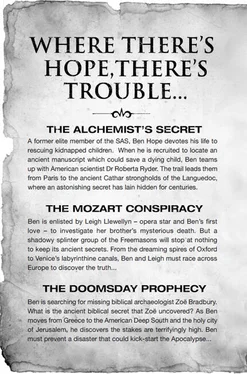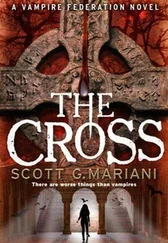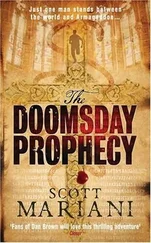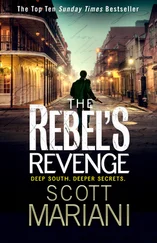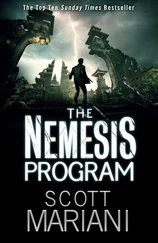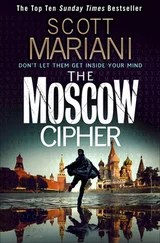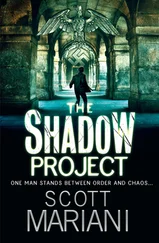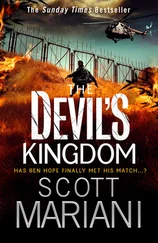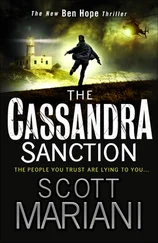He paused at the fallen tree to brush away the clumps of snow from his jeans and observe the house. It was a long, low building except for the round, ivy-clad, two-storey tower that dominated one wing. The stonework was as white as the snow that had drifted high up against the foot of the walls. Thick bushes and spreading pine trees had grown in close all around. He could see no sign of a vehicle, but guessed that Cabeza’s car or truck must be parked behind the wooden doors of the garage built into the ground floor of the house. Straining an ear over the constant whistle of the cold, biting wind, he was sure he could hear faint music coming from somewhere inside. Someone was at home.
He could hear the music more clearly as he approached the foot of the building. It sounded like Beethoven, being played loudly from one of the rooms within the round tower.
The front entrance to the house was at first-floor level, on a raised terrace skirted by a wrought-iron railing. Ben climbed the slippery steps and tinkled the little bell that hung from an ornate bracket by the door. It didn’t surprise him when there was no response. The Beethoven was blaring loudly enough from inside to drown out anything short of a shotgun blast. Maybe Cabeza was deaf, he thought. He tried the door and found it unlocked. Creaking it open a few inches, he peered in and could see the woody interior of a living room with exposed beams and a tall stone fireplace.
‘Hello?’ he called out in Spanish. ‘Anyone here?’
Still no sign of life except for the music. Ben kicked the snow from his boots and stepped inside the house. He looked around him. The scent of freshly-brewed coffee drew his eye to an open doorway to his right, and the kitchen beyond. He walked in and touched the coffee pot by the stove. It was warm, and so was the half-finished cup sitting on the table next to an open newspaper.
The music was still playing in the background. Ben made his way back through the living room towards the sound. Through another door was a hallway that led to the first floor of the tower, a round library completely encircled with wooden bookcases crammed with thousands of volumes and periodicals. Next to a little reading table was an iron spiral staircase leading upwards to a neat circular hole in the ceiling. Ben climbed the steps and found himself emerging into a hallway on the tower’s top floor with a door on either side of him.
The music was coming from the left hand door. Ben knocked lightly, then more firmly. ‘Hello? Professor Cabeza?’ He waited for a reply, but all he could hear were the strains of Beethoven from behind the glossy wood. If Cabeza was inside the room, he didn’t want to scare the man by walking in unannounced – but he couldn’t wait out in the hall forever, either. He gently opened the door and stepped inside.
The semicircular room was bright and spacious, lit from above by a large skylight and from the east and west by a sweeping, curved expanse of floor-to-ceiling windows looking out through the pine trees over the snowy forest and the peaks in the distance. Historical prints hung on the walls. More books and papers lay in heaps and piles everywhere: on the floor, on a side table and among the clutter of the large desk by the window. But what Ben was looking at was the high-backed leather chair facing away from him, and the man he could see sitting in it.
All that was visible of the chair’s occupant were the top of his head and his zip-up tan leather ankle boots. His fair hair was unkempt. He was completely still and looked from behind as if he were gazing dreamily out of the window, so taken up with the soaring orchestral music that he was oblivious of anything else going on around him.
‘Professor Cabeza?’ Ben said.
No response.
‘Are you Juan Fernando Cabeza?’ he asked again, more loudly. Still nothing.
The Beethoven was blaring from a powerful little stereo system in a cabinet. Ben had had enough of it. He stepped across and turned the music abruptly off.
Silence flooded the room like cold water. Ben looked back across at the leather chair, expecting Cabeza to react. What that reaction would be, he’d no idea – outrage, indignation, terror, maybe; as long as the guy didn’t keel over with sudden heart failure, Ben was sure he could get him talking with more or less gentle persuasion and find out whether coming all this way was going to prove a wild goose chase or bring him any closer to finding Brooke.
But Cabeza didn’t so much as twitch at the sudden stopping of the music. Was he asleep? Comatose from drink or drugs? Dead? Ben edged closer, moving round the chair so that he could see the tip of the man’s left shoulder and his legs as well as the top of his head. He was wearing a beige fleece jacket and brown corduroys.
Ben was about to reach out and shake the back of the chair when something moved on Cabeza’s desk.
It was only a minute movement, and Ben only registered it for a tiny fraction of a second before he realised what it was and how he needed to respond to it.
The desk lamp was a metal Anglepoise, chrome-plated to a mirror finish. What Ben had seen was a reflection in the lampshade.
The reflection of something behind him, moving fast towards him.
The reflection of a man with a gun.
Chapter Thirty
Ben wheeled round to see the man striding across the room, headed right for him. He’d been hiding behind the door as Ben came in – a powerfully-built man of thirty-five or forty with short dark hair and a look of animal ferocity on his face. He wore black combat trousers and a military-style jacket.
The gun in his hands was one that Ben recognised instantly. It was a SIG SG 553 carbine: stubby, black. Special Forces and tactical law enforcement personnel termed it a primary intervention weapon; everyone else in the world would call it a machine gun. Seven pounds one ounce of lethal Swiss efficiency, mounted with laser and optical sights and handled by someone who seemed to know disconcertingly well what he was doing as he pointed it directly at Ben’s chest. He wore the weapon’s black nylon tactical sling round his neck and shoulder like a man who’d been trained in combat. The expression in his eye told Ben he wouldn’t hesitate to pull the trigger.
A quarter of a second later, Ben was proved right. But by the time the room erupted with deafening gunfire and the flurry of high-velocity 5.56mm bullets was in midair, Ben was already flying over the desk for cover. The windows shattered. Plaster exploded in chunks from the wall, showering Ben with white dust as he crashed to the floor on the other side of the desk, bringing it down with him and colliding hard against the side of the leather chair, knocking it over.
Out of the corner of his eye Ben saw the body of Juan Fernando Cabeza spill out of the fallen chair, his head rolling off his shoulders and falling down separately to split open into a liquid mush on the carpet.
Except that it wasn’t a real man – it was a mannequin. The beige fleece jacket and corduroys had been stuffed with towels. The head was an overripe pumpkin topped with a straw-coloured wig. The hems of the trousers had been carefully draped over the empty ankle boots, which stayed where they were as the rest of him fell apart.
Ben wasn’t able to gape at the fallen dummy for more than an instant before the man with the gun opened fire again. Bullets thunked into the top of the overturned desk. It wasn’t much of a shield against the potent assault weapon. The gunman rattled off another string of fully-automatic fire that whipped up a storm of splinters from the rapidly disintegrating desk.
Ben was aware there could only be one reason why the shooter hadn’t just walked right up to him, pointed his weapon over the top of the desk and shot him to pieces. He must think that Ben was armed.
Читать дальше
Конец ознакомительного отрывка
Купить книгу
